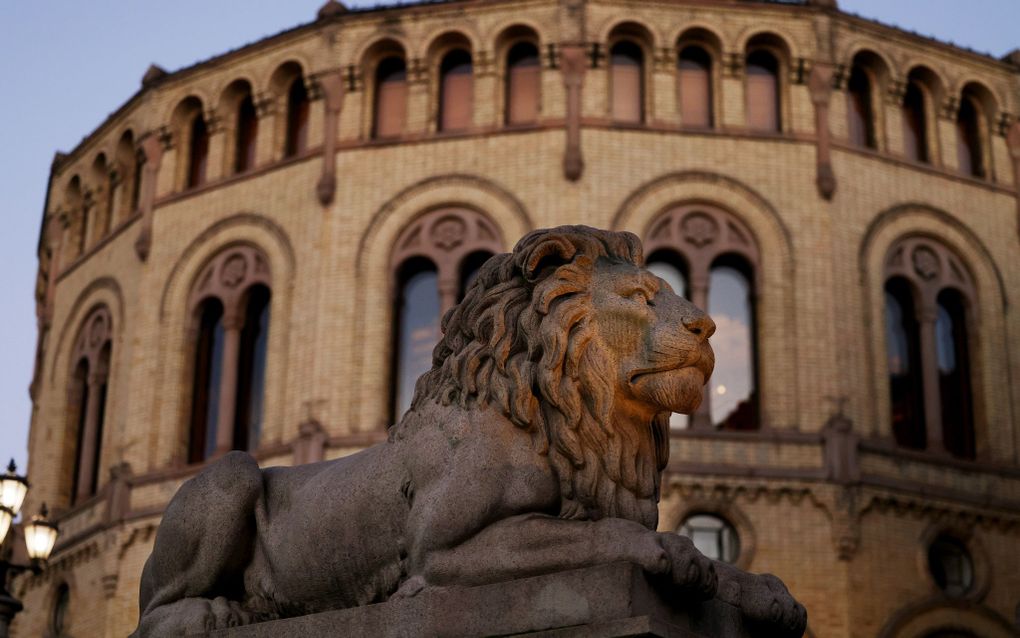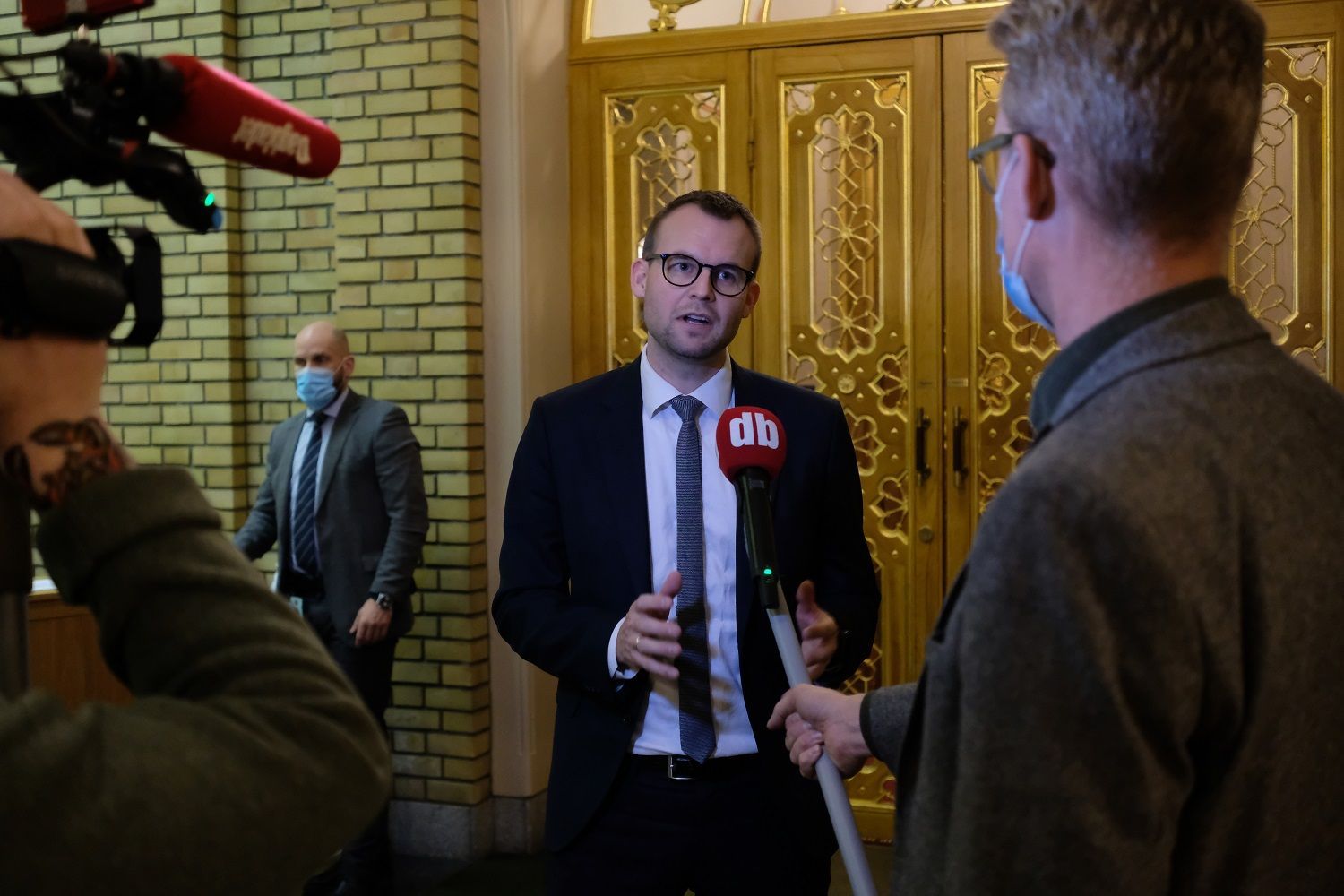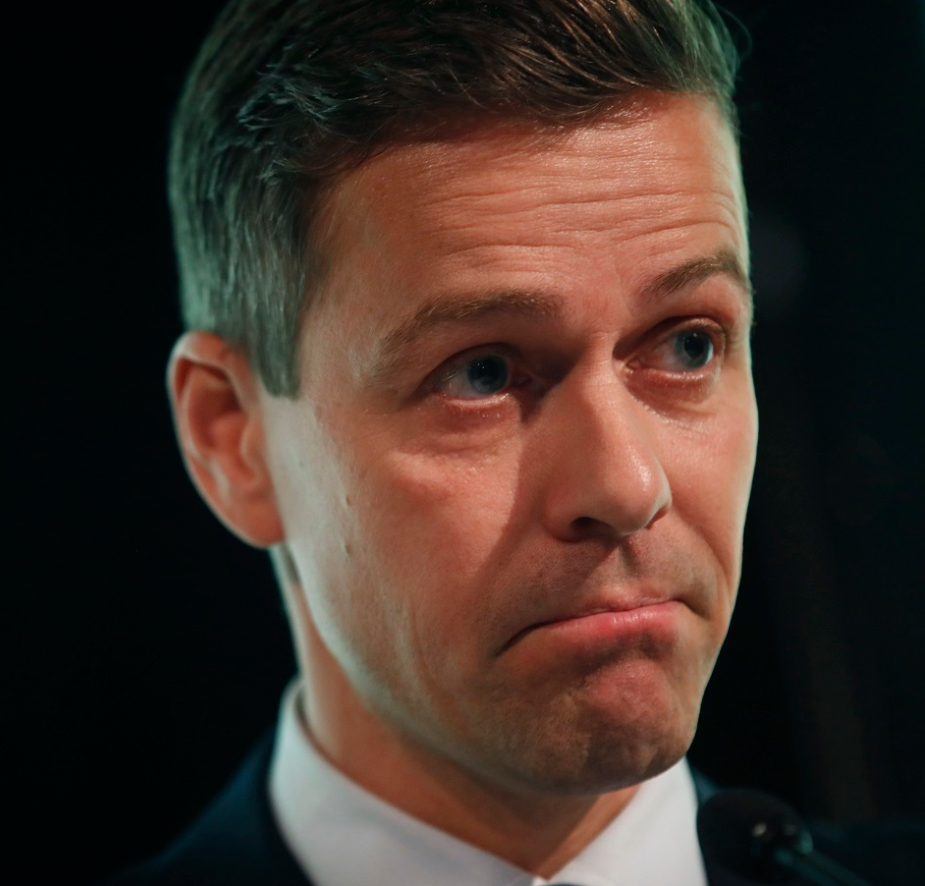Christian Democrats Norway look back on historic loss
Although the Democratic Party of Norway mobilised its voters well in a final sprint, it was not enough to pass the voting threshold of 4 per cent. The conservative party that delivered two prime ministers in the last 25 years won just 3,8 per cent of the votes.

The party was, however, able to keep three seats in parliament. Those seats are personal seats of candidates in local districts. If the party had won 4 per cent, the party would have kept its current number of eight seats in the Storting, the Norwegian parliament.
It is not surprising that the KrF failed to pass the threshold. In polls, the party that delivered a prime minister from 1997 to 2000 and from 2001 to 2005 had been below the threshold of 4 per cent since the last elections in 2017. At those elections, KrF was close to falling below the threshold as well. Back then, the Christian Democrats saved themselves at the last minute with 4.2 per cent of the votes.
On the longer term, the KrF is on the decline since 1997. The party got 13.7 per cent in that year, followed by constant losses in the later elections.
This week, however, the KrF got the least number of votes since 1936. According to Norwegian broadcaster NRK, the party fell 6,000 votes short of the threshold. According to an analysis in Norwegian daily Vårt Land, the KrF did not get enough support in the Bible belt. The figures from the party’s core counties show a decline or stagnation in votes for the Christian Democrats. According to election researcher Svein Erik Tuastad, the KrF mainly managed to mobilise old voters. “They get no new voters; to survive, they depend on new voters. Even in the counties where they should have the greatest appeal, they more clearly do not mobilise”, the researcher told Vårt Land.

Of the eight representatives who were in the Storting, there are now three left. “It is a more demanding starting point, having three people in the Storting. But I’m pretty sure it’s possible. We will do what we can in the next few years to mark a clearer KrF profile and not least spread the party, KrF-leader Kjell Ingolf Ropstad said to Vårt Land.
Party election
What caused this historic defeat? To explain this, party veteran and former Minister of Education and Church Affairs Einar Steensnæs points to the party’s leadership election in 2018.

In that election, the then party leader Knut Arild Hareide called to switch sides and install a centre-left government while KrF vice-presidents advocated the opposite course — becoming a fully-fledged member of prime ministers Erna Solberg’s coalition of conservatives, right-wing populists and liberals. Steensnæs supported the centre-left side, while current party leader Ropstad won with the desire to cooperate with the right.
“After that choice, important people chose to leave the party. Now we see that there are small margins that cause KrF to fall below the threshold. With a united party, I think we had crossed the barrier”, says Steensnæs to Vårt Land.
Election researcher Tuastad believes this election could be the beginning of the end for KrF. Toasted thinks that both mini parties Sentrum Partiet, the Centre Party, and the Partiet De Kristne (PDK), Christian Party, tapped the KrF for fateful votes. The Partiet Sentrum was established by several from the centre-left side in KrF after the election in 2018. The PDK is a value-conservative Christian party formed in 2011 as a reaction against the KrF. The PDK believes that the KrF has moved too far away from what they see as “central Christian principles”.
Church leaders
Church leaders tend to agree with Tuastad. Tor Erling Fagermoen, a pastor of Bergen Free Church, thinks the votes for other minor parties had no use. “One can say that it is a pity for the Center and the Christian Party that they did not get more votes, but it was unfortunately not a good help for the case that the voters were dispersed in this way”, Fagermoen told Vårt Land.
In the run-up to the elections, Christian leaders mobilised their people to vote for the KrF. Sten Sørensen, pastor of Stavanger Mission Church, is one of them. He thinks that Christians are not strategic enough in elections like these. “If half of those who voted for the mini-parties Partiet de Kristne and Sentrum had voted for KrF, then I think they would have crossed the threshold.”
Erik Furnes, general secretary of the evangelical-Lutheran revival movement Indremisjonsforbundet, wrote an op-ed in Vårt Land ahead of the election, encouraging Christians to vote for KrF. He is, like Sørensen, disappointed with the election result. He, however, does not look too darkly at it. “In the end, it’s just politics. Now the people have spoken. We now must relate to those who are elected and pray for them”, says Furnes. “It is a more important agenda for us as faith organisations to relate to God, who has the greatest overview. We must not be too discouraged by this result.”
Too conservative
The fall below the threshold will limit the party’s funding. All political parties in Norway are granted basic support, but also per representative. This means that KrF will, in principle, lose grants for five representatives. According to the Norwegian Press Agency NTB, this will mean that the KrF will lose 118,000 Euro in yearly funding.
For the KrF, the time of reflection has begun. “My analysis is that we had a clear strategy, that it was followed, but that the potential in the electorate we wanted to mobilise is too small”, says Ida Lindtveit Røse, KrF’s first candidate in the south-eastern district of Akershus.

Lindtveit Røse is often singled out as a future party leader. She acted as Minister for Children and Families for Kjell Ingolf Ropstad and is KrF’s party leader in Viken province.
Although several church leaders blame mini parties for KrF’s fall., Ida Lindtveit Røse does not do that. “I see that there are many who blame one or the other party. But even if all the parties’ voters had voted for KrF, it would not have been sustainable either,” said Lindtveit Røse to Vårt Land.
On Friday, September 24th, the national board of KrF will meet to discuss the election result. In the Norwegian press, several party profiles have called for self-examination and evaluation. Central board member Torhild Bransdal is wondering whether KrF’s policy has become too conservative for modern society. “I do not conclude, but it is important to tune the party in”, the outgoing member of the Storting said to the regional newspaper Fædrelandsvennen.
Lindtveit Røse did not want to react to Bransdals comments. However, she believes KrF should now “work more with the profiling of the party, modernise and broaden the party.”
